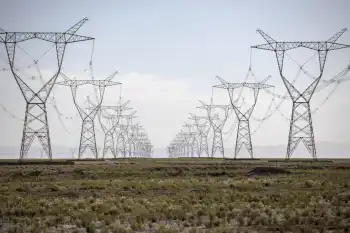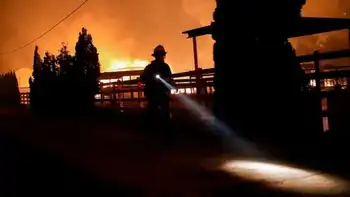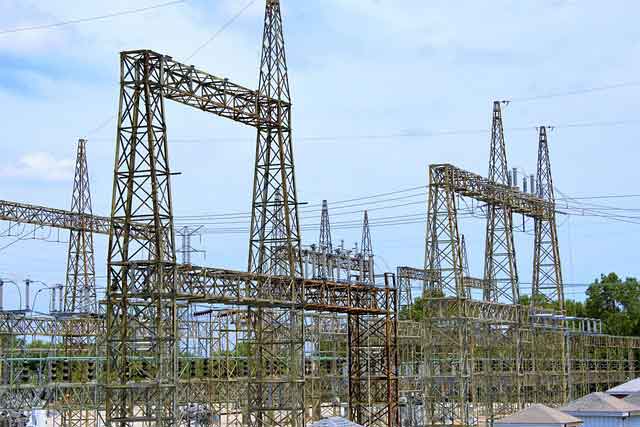Germany Nuclear Phase-Out reflects a decisive energy policy shift, retiring reactors as firms shun new builds amid high costs, radioactive waste challenges, climate goals, insurance gaps, and debate over small modular reactors and subsidies.
Key Points
Germany's policy to end nuclear plants and block new builds, emphasizing safety, waste, climate goals, and viability.
✅ Driven by safety risks, waste storage limits, and insurance gaps
✅ High capital costs and subsidies make new reactors uneconomic
✅ Political debate persists; SMRs raise cost and proliferation concerns
A year has passed since Germany deactivated its last three nuclear power plants, marking a significant shift in its energy policy.
Nuclear fission once heralded as the future of energy in Germany during the 1960s, was initially embraced with minimal concern for the potential risks of nuclear accidents. As Heinz Smital from Greenpeace recalls, the early optimism was partly driven by national interest in nuclear weapon technology rather than energy companies' initiatives.
Jochen Flasbarth, State Secretary in the Ministry of Development, reflects on that era, noting Germany's strong, almost naive, belief in technology. Germany, particularly the Ruhr region, grappled with smog-filled skies at that time due to heavy industrialization and coal-fired power plants. Nuclear energy presented a "clean" alternative at the time.
This sentiment was also prevalent in East Germany, where the first commercial nuclear power plant came online in 1961. In total, 37 nuclear reactors were activated across Germany, reflecting a widespread confidence in nuclear technology.
However, the 1970s saw a shift in attitudes. Environmental activists protested the construction of new power plants, symbolizing a generational rift. The 1979 Three Mile Island incident in the US, followed by the catastrophic Chornobyl disaster in 1986, further eroded public trust in nuclear energy.
The Chornobyl accident, in particular, significantly dampened Germany's nuclear ambitions, according to Smital. Post-Chernobyl, plans for additional nuclear power plants in Germany, once numbering 60, drastically declined.
The emergence of the Green Party in 1980, rooted in anti-nuclear sentiment, and its subsequent rise to political prominence further influenced Germany's energy policy. The Greens, joining forces with the Social Democrats in 1998, initiated a move away from nuclear energy, facing opposition from the Christian Democrats (CDU) and Christian Social Union (CSU).
However, the Fukushima disaster in 2011 prompted a policy reversal from CDU and CSU under Chancellor Angela Merkel, leading to Germany's eventual nuclear phase-out in March 2023, after briefly extending nuclear power amid the energy crisis.
Recently, the CDU and CSU have revised their stance once more, signaling a potential U-turn on the nuclear phaseout, advocating for new nuclear reactors and the reactivation of the last shut-down plants, citing climate protection and rising fossil fuel costs. CDU leader Friedrich Merz has lamented the shutdown as a "black day for Germany." However, these suggestions have garnered little enthusiasm from German energy companies.
Steffi Lemke, the Federal Environment Minister, isn't surprised by the companies' reluctance, noting their longstanding opposition to nuclear power, which she argues would do little to solve the gas issue in Germany, due to its high-risk nature and the long-term challenge of radioactive waste management.
Globally, 412 reactors are operational across 32 countries, even as Europe is losing nuclear power during an energy crunch, with the total number remaining relatively stable over the years. While countries like China, France, and the UK plan new constructions, there's a growing interest in small, modern reactors, which Smital of Greenpeace views with skepticism, noting their potential military applications.
In Germany, the unresolved issue of nuclear waste storage looms large. With temporary storage facilities near power plants proving inadequate for long-term needs, the search for permanent sites faces resistance from local communities and poses financial and logistical challenges.
Environment Minister Lemke underscores the economic impracticality of nuclear energy in Germany, citing prohibitive costs and the necessity of substantial subsidies and insurance exemptions.
As things stand, the resurgence of nuclear power in Germany appears unlikely, with economic factors playing a decisive role in its future.
Related News












